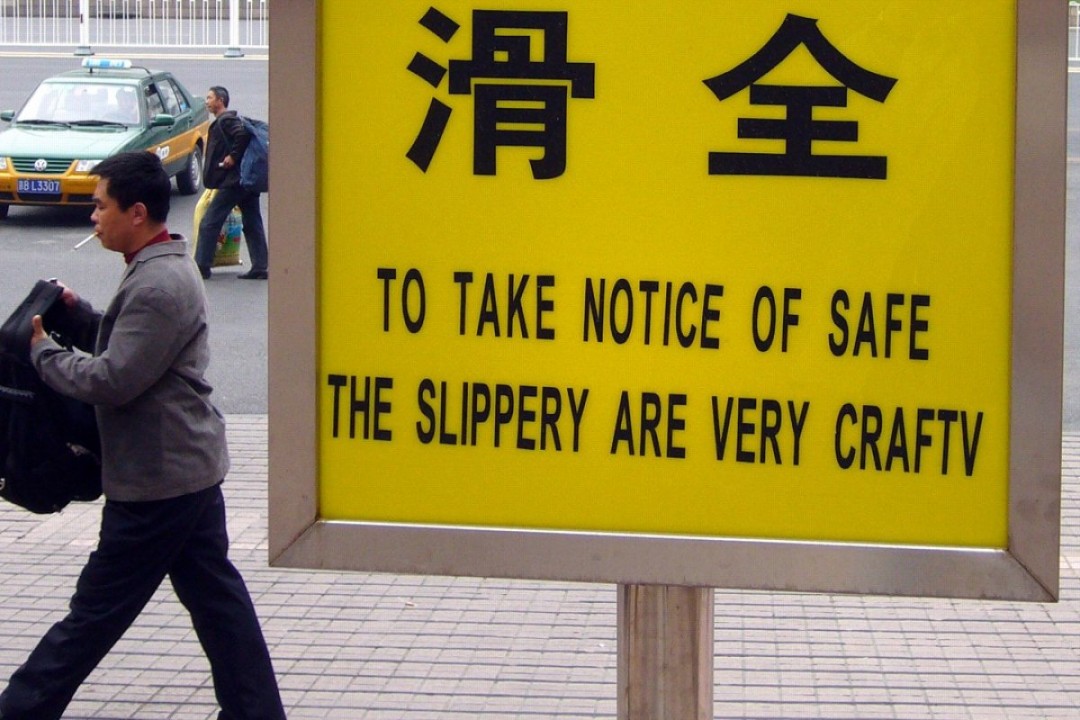
5 Ways CHINGLISH Can Cost You Your Largest Customer
I could have started this article on how Chinglish can cost you “money” but that’s too easy to be overlooked. However, when we start talking about losing our “largest customer” most people can relate and will sit up and pay attention. Throughout this post, you’ll see plenty of funny examples of Chinglish but there is absolutely nothing funny about the consequences.
At The OverSea Network, we believe Chinglish (the blend of Chinese and English) can negatively affect your bottom line in 5 key ways.
1. Order Details
Your orders initially will be placed with the factory in English (unless you know Chinese…assuming you don’t) and will be converted to Chinese. Just take a look at any of the examples of the conversion between English and Chinese and it won’t take you long to see how mistakes can happen.
2. Brand Message
If you are attempting to sell your products into China, your brand message may mean something completely different in Chinese.
3. Custom’s Clearance
The paperwork you started in English (when you placed your order) is converted to Chinese (so the factory worker running the equipment can understand), which is then converted back to English for Customs paperwork. Ever wonder how your order quantity doesn’t match? (Like when what you ordered and what it says on your inbound paperwork is completely off—and Customs doesn’t care? If you want your order released, you will pay what the paperwork says, or it will sit or be shipped back.)
4. Quality Documentation
What if your customer (for example a major retailer like Walmart of Whole Foods) wants to see your quality inspection. Do you feel comfortable that the wording is correct? Just look at these examples of Chinglish--can you honestly say this couldn’t happen to you? I doubt it.
5. Shipping Details/Shipping Paperwork
If the quantities don’t match (or come close to what you ordered), this will create a huge cost difference on your shipping charges. For example, you ordered 10,000 and the paperwork says 100,000. Do you think Customs is going to take your word for it? Hardly.
We’ve tried to tell anyone who will listen--these mistakes rarely happen on the first order. Call it luck, reverse Murphy’s Law, or something but, time and time again, a new relationship and first order with an overseas supplier goes smoothly about 85% of the time. Quality is good, the order clears Customs relatively on time, and everyone cannot pat themselves on the back fast enough. This global sourcing thing--it’s not a big deal, right?
Ah, that’s when it happens--that’s when the sh@t hits the fan. Right after your largest customer places their most important order. Oh, and they need it in a hurry before a holiday or FOR a holiday promotion! No problem, right? This is a repeat order. All the factory has to do is re-run the order they’ve done perfectly before, only this time much larger volume. Again, no big deal. Overseas factories are set up for big orders.
It’s so easy to “assume” and hope…it’s common sense, right? However, Chinese factory workers will do some of the most bizarre things that will defy common sense “IF” you let them. We’ve seen factory workers “change colors” on a printed project because they thought the color they chose looked better. We’ve seen workers change the size of a pouch (on their own accord) because it ran on the equipment better. We’ve seen factory workers ignore order details of “this has to finish today” and go home “for the weekend” because they were “tired.”
To be clear, there are “knuckleheads” everywhere, but if you aren’t prepared for these things --and more importantly have a process in place to be sure this does not happen to you and your orders--you will 100% experience this. We have told our staff on the ground at the factory level their job is to be so clear and so detail-oriented on our orders that those running the equipment “do not have to think.” As a side note, I continue to be amazed at the number of companies who place orders from North America with someone they’ve never met (as their agent—only because the person “says” he/she is in China and speaks Chinese). Seriously! They are trusting tens of thousands of dollars without a hint of protection? Would they do this in the U.S. with their U.S. suppliers? Never!
The moral of the story is this: Get a U.S. partner with staff on the ground in China, in Taiwan, in Vietnam, etc. A U.S. partner who understands what is important to YOU and YOUR company and has the track record to handle it time and time again.


